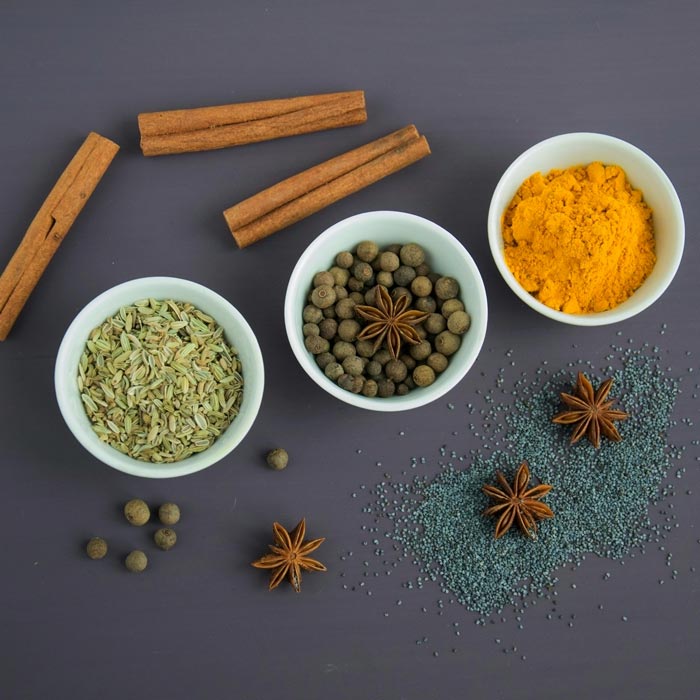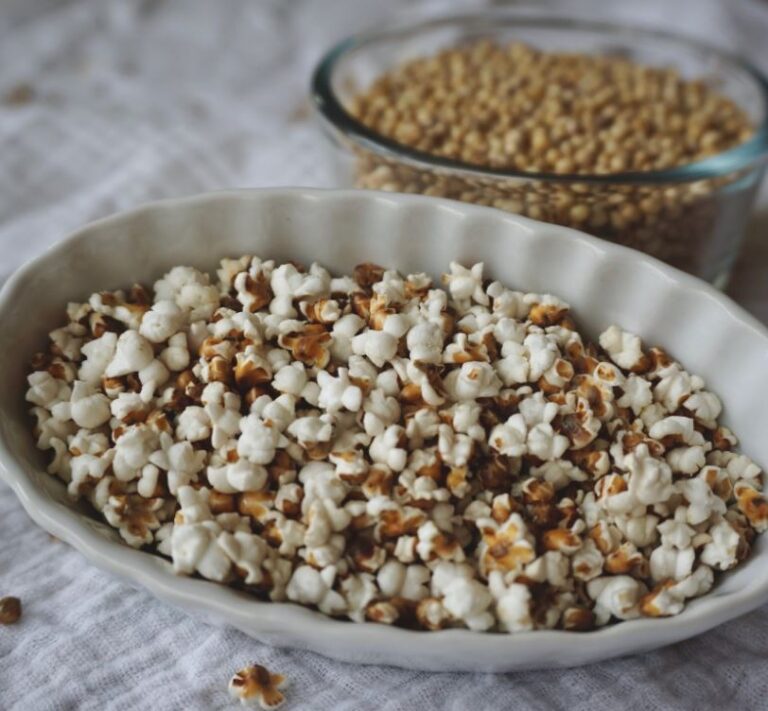Delicious Herbs and Spices With Powerful Health Benefits
The digestive tract, which runs from the mouth to the anus, is responsible for digestion and absorption of nutrients. It is the digestive tract that allows us to develop and maintain our health. The digestive tract is the first organ to be exposed to environmental toxins and pathogens. It is also closely connected with our brain activity, stress, and emotional state through the vagus nervous. This is why digestive symptoms and discomfort are so common.
Takeaways:
- The turmeric plant is closely related. It reduces inflammation, improves gastric and colon motility and nausea and vomiting.
- Curcumin has many biologically active benefits, including pain relief and inflammation reduction.
- Senna, a woody edible plant, has a laxative stimulant effect on the colon that increases bowel movement.
- Flaxseed oil and ground flaxseed have antispasmodic properties and are beneficial for people with IBD.
- There are many other herbs and spices that can improve digestion, such as cardamom, lemon balm, and fenugreek.
Plants can heal many conditions and ailments, and improve your overall health, whether you have been diagnosed or not with a digestive disorder.
Ginger has many digestive benefits
The rhizome of ginger root is a perennial flowering herb that has a lot in common with other aromatic plants such as turmeric, cardamom, and galangal. All of these have medicinal and therapeutic benefits and are used widely around the globe.
Gingerols, and shogaols are the primary bioactive substances in ginger. Ginger is used to treat digestive and inflammatory ailments. It’s also commonly used for nausea, indigestion and slow motility.
Researchers have found that ginger can help to speed up gastric contracting and emptying – two functions which are impaired in people with hypomotility, gastroparesis and delayed gastric emptying. It is also an alternative to drugs such as domperidone or metoclopramide.
Randomized controlled trials found that ginger 1.0-2.0 grams per day reduced nausea and vomiting and improved gastric function compared to placebo. The use of a dosage between 0.5 and 2.0 g per day has been found to reduce chemotherapy-induced nausea.
For relief, drink ginger tea several times per day (2 grams per serving) or take 0.5-2.0 g of ginger root extract daily.
Benefits of turmeric for digestion
Turmeric is a brightly colored spice that comes from the roots of the turmeric flowering plant, which belongs to the ginger family. Turmeric has been used in many cultures for centuries as a spice and medicine. It is common in Indian, Asian and Middle Eastern food. Curcuminoids are the bioactive components in turmeric roots. The most common compound is curcumin, which has powerful anti-inflammatory and anti-cancer properties, as well as neuroprotective and blood sugar balancing effects.
[ruby_related heading=”More Read” total=3 layout=1 offset=5]
Many studies have shown that curcumin and turmeric extract , in supplement or tea form, can improve digestive symptoms and relieve pain.
Both Crohn’s and Ulcerative Colitis are inflammatory bowel disease that can cause chronic pain, diarrhea and other symptoms. They also have elevated inflammatory markers. In one study, those with UC who combined drug therapy and curcumin at a dosage of 1500mg daily for 8 weeks experienced improvements in inflammatory markers. The patients also scored higher on questionnaires about their disease and had a better quality of life than those who were on drug therapy plus a placebo.
For relief, take 500mg of curcumin three times per day (along with a meal containing fat for better absorption).
Senna has digestive benefits
Senna or alexandrina, a woody shrub that produces a laxative effect after consumption. Senna, an FDA-approved laxative over-the counter for constipation treatment or bowel preparation before surgery or colonoscopy. Senna causes the colon to contract, which in turn helps produce bowel movement.
One randomized-controlled trial (STIMULAX trial) found that colorectal surgery patients receiving both stimulant (including senna) and osmotic laxatives recovered gastrointestinal function earlier with less post-surgery complications compared to those with placebo.
Senna can cause colorectal discoloration when used for long periods or in high doses. This may increase the risk of colorectal carcinoma.
Senna is available in powder, chewable tablets, tea and as a tea. It is taken before going to bed in order to have a bowel motion the next day.
Flaxseed has digestive benefits
Flaxseed, though not a spice is a healthy food that you should consume regularly. Flaxseed is a small seed that’s rich in omega-3 fats and fibers. It also contains bioactive compounds and lignans.
According to a study, ground flaxseed is superior to flaxseed oils in reducing the size of ulcers and pathogenic bacteria. Flaxseed Extract, which can be obtained from ground flaxseed, is superior to oil for reducing intestinal spasms and mucosal damage.
A study on animals shows that flaxseed has both antimotility and antidiarrheal properties, along with reducing diarrhea-inducing bacteria in the colon. Researchers concluded that flaxseed was an effective treatment for both infective and non-infectious bacterial infections.
Add flaxseed, either ground or oil, to salads, smoothies, grains cooked, oatmeal and other dishes.
Other helpful plants for digestion
Lemon Balm is a mint-related herb that has a soothing effect. It may be helpful for anxiety or other digestive discomfort. It is also antibacterial, and it has been proven to help with indigestion. You can consume it up to three times per day in the form of tea (1.5-4.5g dried Lemon Balm steeped with 8 ounces hot water), as a supplement (500mg) or topically.
Fenugreek is an annual herb which helps maintain beneficial microbes within the digestive tract, even when a high-fat western or American diet is consumed. It is particularly helpful in maintaining metabolic function and reducing risk of metabolic syndrome. However, more research on humans is required to determine the therapeutic dose.
Cardamom is a member of the ginger family and offers many similar benefits. It can relieve gas, bloating and relax the smooth muscles, which are the main muscles in the digestive system. Cardamom is commonly used as a therapeutic tea.
Marshmallow Root is the root of the flowering plant marshmallow. It has mucilaginous qualities that coat and protect intestinal mucosa from inflammation, and helps to prevent ulcer formation. For digestive symptoms, tea and powdered form are best.
Nearly all people in the world experience digestive discomfort at one time or another. Since ancient times, specific plants have been used as medicine. Researchers have found that ginger, turmeric and senna are all plants and spices that can reduce digestive symptoms.
Resources
- Cancer Nursing. Does the oral administration of ginger reduce chemotherapy-induced nausea and vomiting?: A meta-analysis of 10 randomized controlled trials.
- European Review for Medical and Pharmacological Sciences. Can nausea and vomiting be treated with ginger extract.
- Phytotherapy Research. The effect of curcumin supplementation on clinical outcomes and inflammatory markers in patients with ulcerative colitis.
- Mount Sinai. Lemon balm.
- Scientific Reports. Fenugreek Counters the Effects of High Fat Diet on Gut Microbiota in Mice: Links to Metabolic Benefit.
- NIH. Influence of a highly purified senna extract on colonic epithelium.







